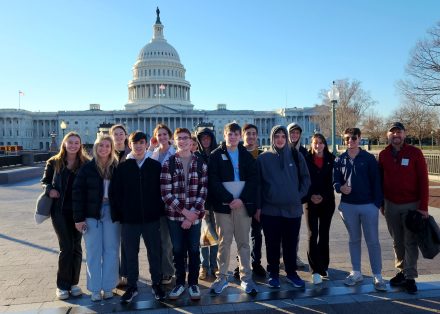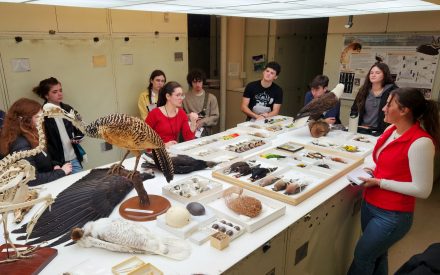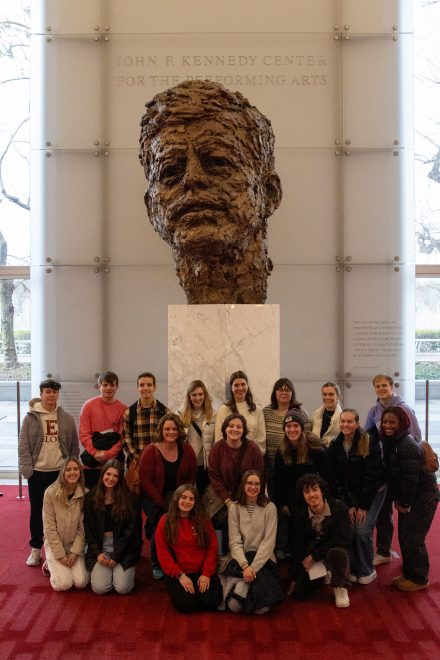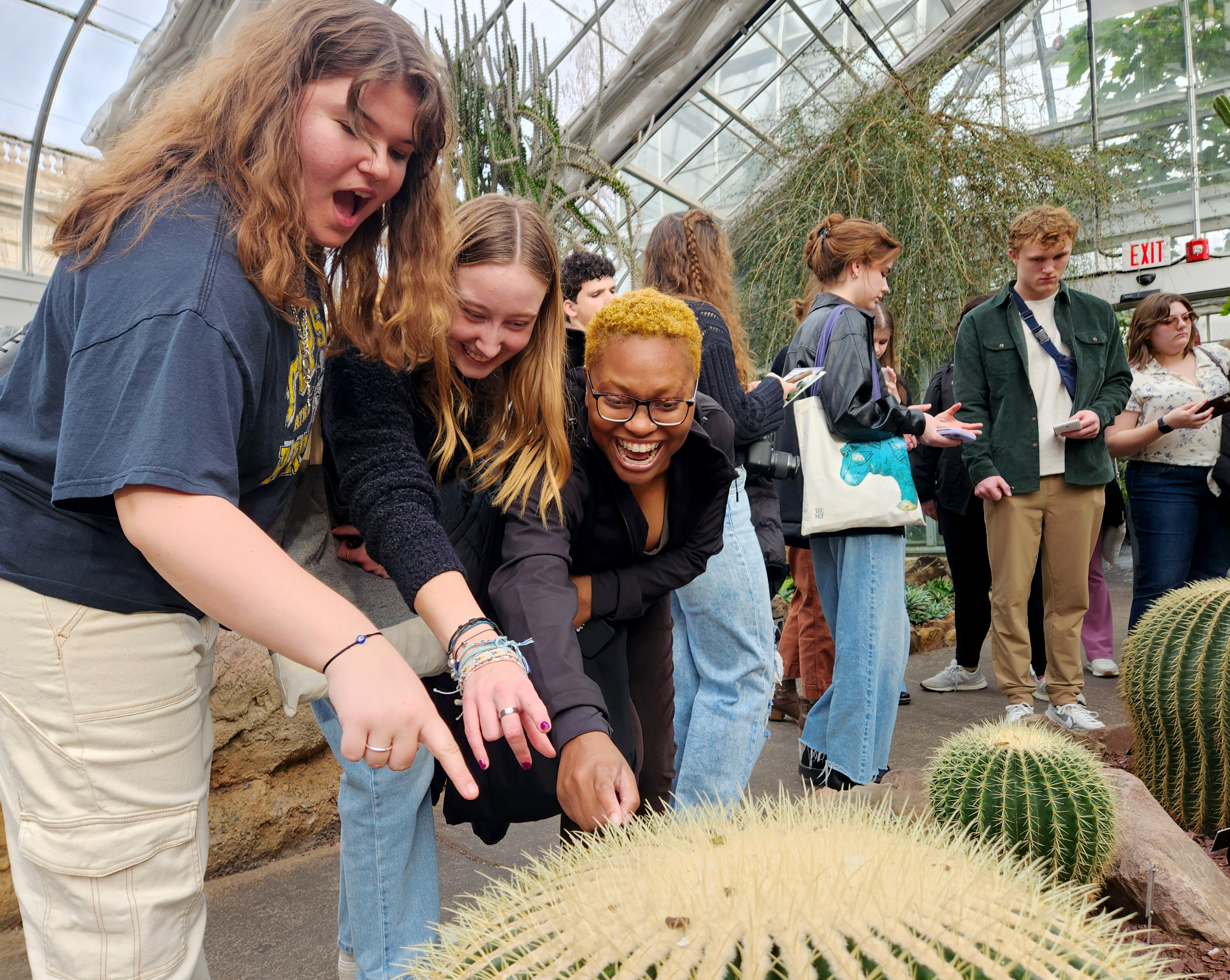Sixty-four first-year Elon College Fellows spent Winter Term exploring ways the arts and sciences intersect, growing their skills of inquiry and building a community of learners in a signature course that includes a six-day visit to Washington, D.C.
Sixty-four first-year Elon College Fellows stoked the fire of curiosity this Winter Term in a course that included a trip to the nation’s capital for experiences on and off the beaten path.
ECF 1110 Paths of Inquiry in the Arts and Sciences serves as an introduction to the research process, honing the ways students pose questions, form hypotheses and even apply for support through grants and awards. Regardless of their majors, whether in anthropology, biochemistry or theatrical design and technology, each College Fellow will participate in two years of closely mentored undergraduate research before they graduate.

The highlight of the seminar course is a six-day visit to Washington, D.C. This year, Fellows participated in more than two dozen tours, site visits and meetings with experts working in fields that span the arts and sciences — from staff of U.S. Sen. Thom Tillis (R-N.C.), to pediatric cancer and neuroscientific researchers at the National Institutes of Health, to ornithologists working in the Smithsonian Institute’s Museum of Natural History. Interspersed were tours of the Kennedy Center, the Library of Congress and various museums of history, science and culture, along with exploration of the city’s vibrant street art and a performance by the Baltimore Symphony Orchestra. Their trip concluded in a reception with 10 Elon alumni in the D.C. area.
“D.C. was a great way to expose us to so many academic avenues we could pursue,” said Jonathan Berkson ’27 of Philadelphia. “Even though I’m an astrophysics major, I was really interested in the National Museum of Natural History. It was great to see that there’s more I can incorporate into my research than just what’s in my major. I can relate it to so many different things that are all individually interesting, unique and cool.”
Housed in Elon College, the College of Arts & Sciences, the Elon College Fellows is a four-year academic and professional program that explores the breadth, depth and connections within the arts and sciences among a community of learners. It culminates in a two-year research project closely mentored by a faculty member in the College, which often leads students to publish and present their work.

Jaqueline Zacharias ’27, an environmental studies major from Green Bay, Wisconsin, said the Winter Term experiences led her to examine information beyond her scientific areas of interest.
“Coming into Elon, I feel like I had more tunnel vision on things I wanted to study. The course and trip opened my eyes to the different paths I can take in my major,” Zacharias said.
That interdisciplinary application of the arts and sciences is crucial to the College Fellows program, said Heather Lindenman, an associate professor of English and one of five professors who co-taught the course. The College includes 21 departments in three academic branches — arts and humanities; natural, mathematical and computational sciences; and social and behavioral sciences — but also 31 interdisciplinary programs that approach problem-solving through various lenses.
“The mission of this seminar is to help students see that the world is the source of their curiosity and their academic inquiry,” Lindenman said. “It’s the whole world that’s going to inspire their big ideas. We go to Washington, D.C., so that students can find their own interests on tours we lead or in their own explorations, and so they see the world not as categorized as a set of distinct academic disciplines, but one full of interdisciplinary questions and problems.”
Other instructors leading the course were Associate Professor of Environmental Studies Amanda Chunco, Assistant Professor of Psychology Katrina Jongman-Sereno, Professor of Political Science and Policy Studies Jason Kirk and Associate Professor of Music Ally Wente.

Built into the course are reflective essays about the trip’s tours and experiences and exercises in writing successful research proposals and grant applications. Each student leaves the course with experience in the research development process that will guide them in their two-year research projects they’ll initiate their sophomore year and complete in the spring of their senior year.
Much of the winter course is constructed around the peer-review process, growing their social and academic belonging. Fellows worked together to hone their initial research questions, practice research proposals in an “elevator pitch” competition and bestow awards for the most creative project titles.
“Their friends in the College Fellows will be the ones reading over their Lumen Prize applications, helping them practice their presentations, and supporting them through the research process,” Lindenman said. “So, just as importantly, this course and the D.C. trip are about establishing and building that community for them.”



